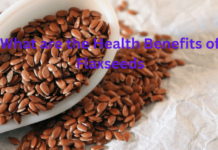Vitamin D also referred as the sunshine vitamin, belongs to the family of fat – soluble vitamins. It is considered as one of the essential vitamins required by our body. It belongs to the family of compounds which includes D- 1, D – 2, and D – 3. As it is a fat – soluble vitamin, therefore, it is stored in our fatty tissues and there is no need to take it regularly. It is surprising to know that this vitamin can affect as many as 2000 genes in our body.
VITAMINS – WHAT ARE THEY, WHY DO WE NEED, HOW DO WE GET?
Types of Vitamin D:
Vitamin D exists in several forms but there are two major types of the same i.e. D2, also known as ergocalciferol and D3, also known as cholecalciferol. Vitamin D without a subscript refers to either D2 or D3. Vitamin D2 and D3 are collectively known as calciferol. Both this D2 and D3 can be ingested from the diet or from the supplements.
Why is Vitamin D so important?
The importance of vitamin D is not hidden from anyone. It has plenty of health benefits such as it is helpful in absorbing calcium and phosphorous. Apart from this, it also facilitates normal immune system functioning. In addition to its primary benefits, this vitamin also fights with diseases and make us healthy and strong. Do you know that vitamin D plays a key role in regulating our mood and warding off depression?? This fact is shocking but it is 100% true. Vitamin D has the ability to fight with depression and makes us happy. Apart from all these benefits, vitamin D boosts weight loss. You can consider this vitamin in your diet if you’re trying to lose your weight.
VITAMIN C FACTS YOU SHOULD KNOW ABOUT
How do we get Vitamin D?
Vitamin D is very common and is easily available in the food material that we are eating regularly. Besides this, vitamin D is produced when your body exposed to the sunlight. Foods such as cod liver oil, mushroom, oily fish, fortified cereals, tofu, dairy products, pork, eggs, almond milk, rice etc are the rich source of this vitamin. Apart from this, vitamin D is also available in the supplement form which is easily available in the market.
8 TYPES OF VITAMIN B – NEED TO KNOW ABOUT SOURCE AND EFFECTS OF DEFICIENCY
Diseases caused by the deficiency of Vitamin D:
Lack of vitamin D in our body causes severe diseases such as rickets, osteomalacia, diabetes, skin pigmentation and a lot more. Some of them are explained here.
Rickets
This is the well – known disease which is caused by the deficiency of vitamin D. this is characterized by the impeded growth and soft, deformed and weak bones. Basically, this disease is caused by the lack of calcium in our body.
Osteomalacia
Another disease which is caused by the deficiency of vitamin D is osteomalacia. This disease is characterized by the softening of bones which further leads to the bending of spines, bowing of the legs, bone fragility, and proximal muscle weakness.
VITAMIN A – BENEFITS, SOURCES & EFFECTS OF DEFICIENCY
How much amount of vitamin D is sufficient?
Vitamin D is beneficial only if taken in the proper amount. Undoubtedly, the amount varies for children and adults.
Age | Amount |
| Children and teens | 600 IU |
| Adults up to age 70 | 600 – 670 IU |
| Adults over age 70 | 800 IU |
| Pregnant and lactating women | 600 IU |
Effect of excess of vitamin D:
Excess of anything is bad and so does with vitamin D. Excess of vitamin D causes hypercalcemia. The main symptoms of an overdose of vitamin D are nausea, vomiting, and anorexia. This is frequently followed by weakness, insomnia, polyurea and nervousness. An overdose of vitamin D leads to the mental retardation, severe depression and weight loss. So, be aware of the amount of vitamin D that you are taking in your diet. It is helpful only if taken in a limited amount.











